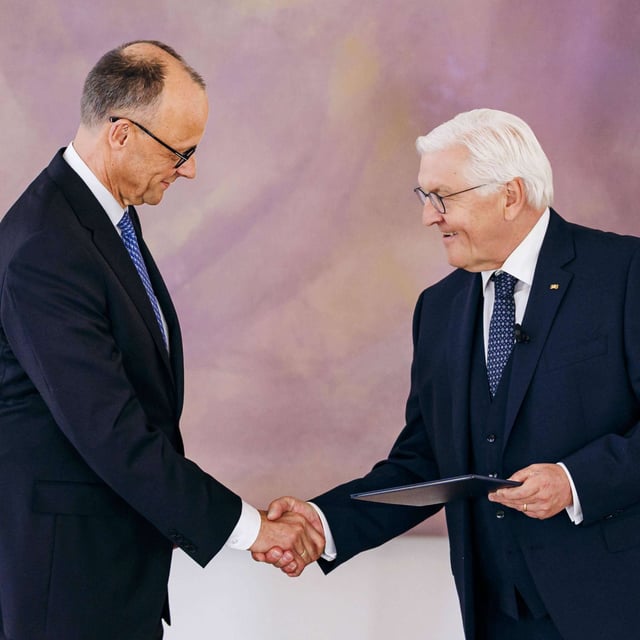Overview
- Friedrich Merz was elected Germany's tenth chancellor with 325 votes in a second ballot, after falling six votes short in the first round earlier in the day.
- This marks the first time in postwar German history that a chancellor candidate failed to secure an absolute majority in the initial vote.
- The Bundestag altered its procedural rules with a two-thirds majority, supported by parties across the spectrum, to allow a second vote on the same day.
- The failed first vote revealed dissent within the CDU/CSU–SPD coalition, with 18 MPs withholding their support, raising concerns about the coalition's cohesion moving forward.
- Merz's cabinet was sworn in by President Frank-Walter Steinmeier, and the new government held its first meeting, signaling an urgent need to address internal divisions and public confidence.



